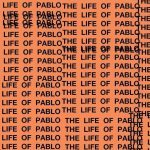In an interview about the making of Kendrick Lamar’s last album Good Kid M.A.A.D. City, the (then-hatless) Pharrell Williams said: “Kendrick is the black Bob Dylan.”
Now, “X is the next Dylan” is the laziest music writer’s phrase in the world, but – and this comes from a lifelong Dylan fan – here it holds some water. There is the same loving respect for forebears, the same roving desire to throw out what worked last time in search of pioneering the next artistic direction (much of To Pimp a Butterfly uses a live band feel influenced more by neo-soul and funk than more traditional hip-hop beats: purists have responded in a similar way to Dylan taking up an electric guitar), a similar obsessive craftsmanship that results in what sounds like a casual brilliance, and for the listener, the same feeling that it will take months and years to mine the depths of his best work.
As good as Good Kid M.A.A.D. City was, To Pimp a Butterfly is his best work and will be many people’s album of the year: confessional without being self-obsessed, intricate without being obtuse, innovative without being exclusive. It somehow discusses politics without being didactic, and race without putting on victimhood, he even reaches towards inspirational without saccharine. Musically, it’s brilliant: bass prodigy Thundercat’s frequent contributions are welcome, lending the whole thing a forward-leaning, futuristic strut, that swerves as needed between free jazz, uplifting soul and militant, rallying beats.
But Lamar more than ably keeps pace at every level. In terms of rapping, Lamar is far better than he has any right to be. He plays his cadence, like Coltrane on the saxophone, unsatisfied with a single pattern and switching flows and viewpoints at will (at various points, he raps from the perspective of a concerned mother, a homeless man who turns out to be God, and a manic depressive).

I should say at this point that it’s also not for everyone: it has the swearing and occasional sexual language typical of the genre, and that I have no real interest in discussing or defending. But those who reach beyond that will find plenty worth talking about.
The other way Lamar resembles Dylan is in a relationship with God, that is, for the listener, equal parts puzzling, intriguing and frustrating. After all, this is how the last album, Good Kid M.A.A.D. City started:
Lord God, I come to you a sinner, and I humbly repent for my sins. I believe that Jesus is Lord. I believe that you raised Him from the dead. I will ask that Jesus will come into my life and be my Lord and Saviour. I receive Jesus to take control of my life that I may live for Him from this day forth. Thank you, Lord Jesus, for saving me with your precious blood. In Jesus’ name, Amen.
The climax of that album was a revenge-minded Kendrick realising the desperation of his situation, when an unnamed woman tells the young rapper that he’s “dying of thirst” and he needs holy water, and has him repeat the prayer. (Remember at this point that Kendrick is a mainstream rapper who has avoided any Christian market label.) It’s one of the clearest calls to the gospel that I’ve heard in music, Christian or secular.
The spiritual element continues on To Pimp a Butterfly: a poem is repeated and slowly unfolds through the album, a poem describing “the evils of Lucy all around me”. Lucy, it is later revealed, is short for Lucifer. And on “For Sale”, against a dreamlike backing track, Kendrick, as Lucy, details the shopping list of temptations that confront a young rapper at the top of the industry. As he does, it’s a reminder that temptation is not something ‘out there’, but never further away than your heart. Musically, the track echoes the lustre of temptation, even as the lyrics describe its downfalls.
This type of thematic tension is typical through the album, but one of the clearest examples is between tracks “u” and “i”. In the middle of the album, we have “u”, where after a lament-filled intro, and a rambled chorus consisting of one repeated line: “Loving you is complicated”. We realise in the end that it is a monologue not to a lover, but that that “you” in that chorus is himself—loving yourself is nothing if not complicated. For Lamar, this is complicated by many things, including guilt over the death of a friend in a drive-by shooting, guilt which makes him think “God will say ‘you failed’”.
However, by the end of the album, with “i”, this has transitioned to a chorus that triumphantly declares “I love myself”, and includes this introduction:
I done been through a whole lot
Trial, tribulation, but I know God
The Devil wanna put me in a bow tie
Pray that the holy water don’t go dry
Whether or not Kendrick is a Christian in the greatest sense of the word is between him and God, but for us, looking and listening on, we can reflect on a relationship that is complicated. This complex, incredible album makes me reflect: how much do we lose from a relationship when we attempt to reduce it to something free from any complication?












